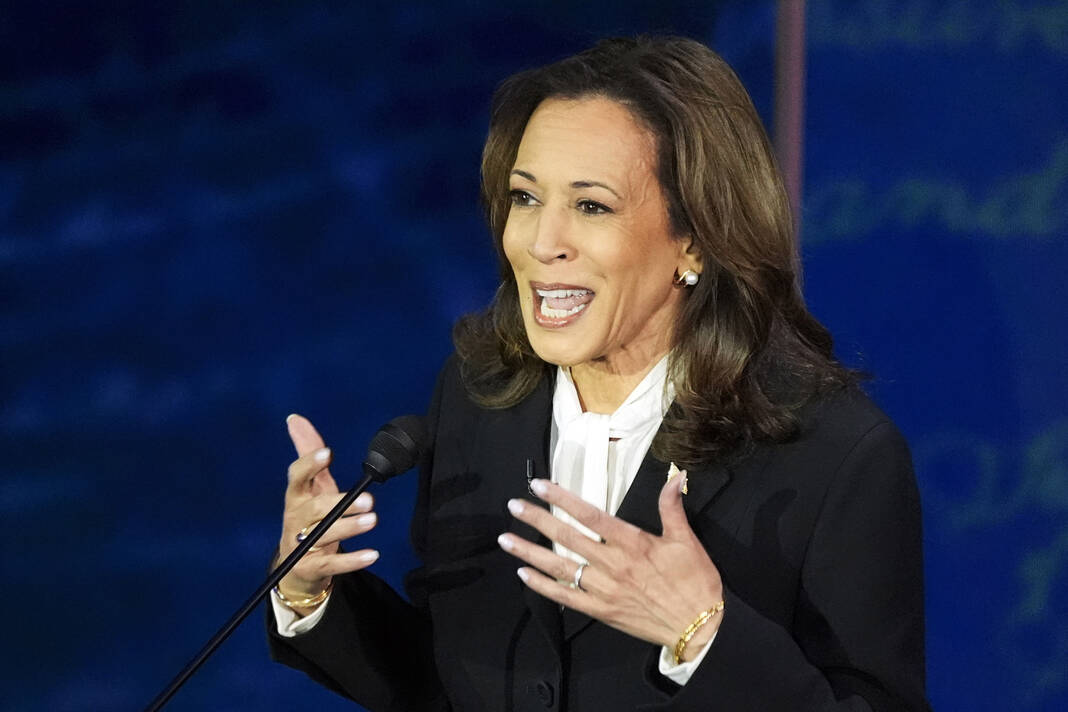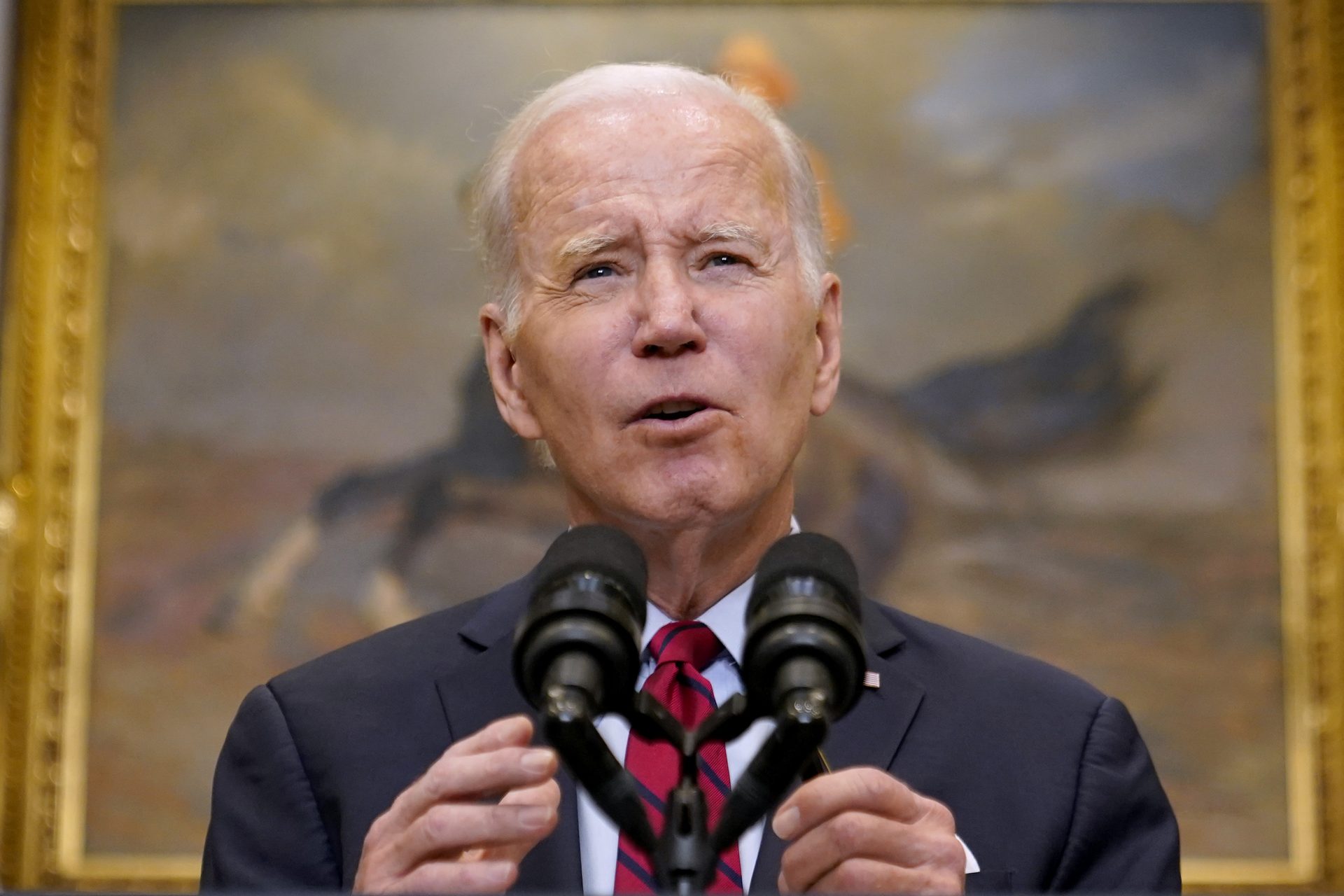Dogs and cats aside, the presidential debate between Vice President Kamala Harris and former President Donald Trump gave voters much to chew on Tuesday. Sifting through the jabs, gaffes, and rally attendance claims one will find the occasional nugget of policy, even health care was addressed here and there.
And women’s health particularly dominated those exchanges, specifically over abortion and IVF. Medicare funding, of course, was also discussed as well as the Affordable Care Act.
Trump, the Republican nominee for president who has visited the Rio Grande Valley several times since his presidency (although for border security purposes), was hit during the ABC debate for not quite committing to vetoing a national abortion ban if it came across his desk, while Harris (a Democrat who has also visited the region) faced accusations of favoring late-term abortions, even after birth.
In the lead up to Tuesday’s row, however, both candidates had already offered sneak peaks of where they stand on a slew of issues.
Regarding the LGBTQ community, for instance, Trump has proposed revoking “gender affirming care,” which would prohibit those services for children, as well as asking Congress to pass a bill establishing that the U.S. government will only recognize two genders — male and female.
Harris, meanwhile, wants to provide non-discrimination protections, a hallmark of the Biden administration, which has also provided similar protections as it relates to Health and Human Services grants and services.
Another healthcare policy addressed by both candidates was the prices on prescription drugs, with Harris wishing to speed Medicare pricing negotiations, and to extend the $35 insulin copay cap and the $2,000 drug out-of-pocket cap.
Trump, on the other hand, wants to compare prescription drug pricing with other countries and is willing to sign an executive order to see that through.
 Republican presidential nominee former President Donald Trump speaks during a presidential debate with Democratic presidential nominee Vice President Kamala Harris at the National Constitution Center in Philadelphia, Tuesday, Sept. 10, 2024. (Alex Brandon | AP Photo)
Republican presidential nominee former President Donald Trump speaks during a presidential debate with Democratic presidential nominee Vice President Kamala Harris at the National Constitution Center in Philadelphia, Tuesday, Sept. 10, 2024. (Alex Brandon | AP Photo)With much to consider, The Monitor narrowed down the policies and asked Dr. Candace Robledo, an associate professor at the University of Texas Rio Grande Valley and its School of Medicine, to provide nonpartisan insight.
She is a doctoral-level epidemiologist with collaborative research and consultation experience in reproductive and perinatal epidemiology, and advanced quantitative and computing skills, according to UTRGV.
Dr. Robledo was trained at the University of Oklahoma Health Sciences Center and Texas A&M University Health Sciences Center and “served for three years as a tenure track assistant professor in the Department of Behavioral and Community Health at the University of North Texas.”
“Her primary research interests have focused on assessing the impact that environmental chemicals (i.e. bisphenol-A, phthalates, persistent organic pollutants and air pollution) have on maternal and child health. Dr. Robledo also has experience conducting research and working with research teams on a broad range of reproductive, pediatric and behavioral research topics,” her UTRGV biography reads. “Though a new investigator, Dr. Robledo has a great deal of expertise and experience successfully conducting studies in human populations and working as part of a research team.”
The Monitor:
In opposition to Donald Trump, who opposes late-term abortions and instead supports policies that advance prenatal care and access to birth control, Kamala Harris has stated that she supports reinstating Roe v. Wade protections. Saying that some expecting mothers feel forced to carry — even if it’s detrimental to their health — due to finding difficulty locating doctors who would perform abortions.
In the Rio Grande Valley, have you encountered more instances like these since Roe v. Wade was overturned? And explain how dire those circumstances can be.
Dr. Candace Robledo:
UTRGV and UT Health do not take a position on issues or candidates. However, access to prenatal care, family planning, and reproductive health are only a few factors in a complex web that contribute to the vulnerability of women, especially women of color.
The rates at which U.S. women experience death in pregnancy or within the first 365 days after delivery are some of the highest of any developed nation. We see that women who are Black/African American and that are over the age of 40 are almost three and six times, respectively, more likely to die when compared to non-Hispanic white and younger women.
The U.S. Maternal Vulnerability Index examines 43 indicators for women’s health across five categories: reproductive health care, physical health, mental health and substance abuse, general health care, socioeconomic determinants and the physical environment that together create conditions that increase a woman’s risk of maternal death, injury and bad health outcomes.
The maternal vulnerability index for counties that make up the Rio Grande Valley are ranked very high and some of the highest across the nation, suggesting poor health outcomes for women living in our communities.
Our maternal health research is designed to build capacity around us to foster research and to better understand these conditions that increase women’s vulnerability to poorer health outcomes and to partner with our community to design and test solutions to promote health equity in women living in the Rio Grande Valley.
 Democratic presidential nominee Vice President Kamala Harris speaks during a presidential debate with Republican presidential nominee former President Donald Trump at the National Constitution Center in Philadelphia, Tuesday, Sept. 10, 2024. (Alex Brandon | AP Photo)
Democratic presidential nominee Vice President Kamala Harris speaks during a presidential debate with Republican presidential nominee former President Donald Trump at the National Constitution Center in Philadelphia, Tuesday, Sept. 10, 2024. (Alex Brandon | AP Photo)TM:
In regards to maternity care, Donald Trump has announced that if elected into office he would support access to in vitro fertilization (IVF) care and mandate that the government or insurance companies cover the cost of IVF. Kamala Harris says she supports guaranteed rights to IVF and spoke out against the Feb. 16 Alabama Supreme Court ruling, which ruled that embryos created through IVF should be considered children.
Based on what you see locally, what is a lesser known consideration or issue regarding IVF that the candidates should focus on more?
DR:
Infertility is a condition that millions of Americans experience every year, and most cases of infertility are unexplained, meaning that after a clinical evaluation we cannot provide a reason why someone is experiencing the inability to conceive or have a full-term pregnancy. In vitro fertilization is the most common way infertility is addressed.
Currently IVF is open and accessible in all 50 states and Washington, D.C. but IVF is not commonly covered by insurance and therefore most people have to pay out of pocket for these services. The average cost of a round of IVF is approximately $12,000 and oftentimes individuals must undergo 2-3 rounds of IVF to be successful.
While IVF can be accessed across the U.S., the cost and lack of insurance coverage is a huge barrier that keeps it out of reach for many Americans and most likely those living in the Rio Grande Valley, where the median household income is about $54,000 a year.
TM:
Kamala Harris has gone on record supporting and wishing to grow the Affordable Care Act for more Americans, making the expanded subsidies passed in the Inflation Reduction Act permanent. While Donald Trump has opposed the ACA and instead seeks to change it by replacing it with better health care that’s less expensive.
In your experience, has the ACA been more helpful or detrimental to Valley residents in need of health insurance?
DR:
The rate of uninsured in Texas is higher compared to other states and in the Rio Grande Valley 1 in 3 do not have health insurance. We see that people without health insurance are more likely to be at increased risk of chronic disease and poor health outcomes and when they do gain access to the healthcare system, they are less likely to receive adequate and evidence-based care as compared to those with health insurance.
We also know that those without insurance also face numerous additional barriers in affordability and access to health care such as transportation. Policies that ensure health coverage for all Texans and increase the affordability and accessibility of health insurance can promote health equity across our communities.
The post Diagnosing the issues: Harris’ and Trump’s healthcare policies under RGV’s microscope appeared first on MyRGV.com.
 (2).png)
 5 days ago
21
5 days ago
21








 English (US)
English (US)